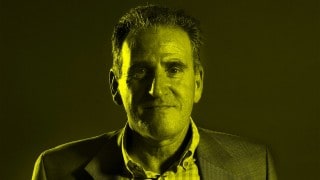Die Energie- und Klimapolitik der amerikanischen Demokraten ist gescheitert (genauso wie die verfehlte Klimapolitik der EU), weil sich die Mehrheit der Bevölkerung immer stärker und radikaler gegen grüne Steuern und steigende Energiepreise wehrt. So jedenfalls sieht es der amerikanische Umweltautor und grüne Realo Michael Shellenberger. Er hofft deshalb auf einen ‘Dritten Weg’; anstatt fossile Energien immer weiter zu verteuern, sollten Gesetzgeber lieber alternative Energien verbilligen, damit sie auf dem freien Markt mit den Anbietern fossiler Energien konkurrieren können. Was Shellenberger freilich nicht erklärt, ist, wie diese Quadratur des Kreises wirtschaftlich zu verwirklichen wäre. Immerhin hat er aber als einer der ersten Grünen jetzt akzeptiert, dass die vorherrschende Energie- und Klimapolitik in den USA und in Europa keinerlei Zukunft mehr hat:
Who killed cap and trade? Dogmatists on left and right. On the right, Senate Republican leadership insisted that the problem of climate change isn’t serious and nothing should be done. On the left, environmentalist Democratic Senators insist that the only way to emissions reductions is to price our way to a clean energy economy. In this way Democrats actually helped Republicans, who didn’t need to do much more than repeat “higher gasoline prices” to defeat the bill.
The price-centric approach is a political, technological, economic, and ecological loser. Voters, and thus politicians, will never accept raising energy prices high enough to make clean energy cost competitive.
The insistence by cap and trade boosters on a high price for carbon dioxide pollution disproves the oft-made claim that clean energy sources are almost cost-competitive with coal. Some, like wind, is occasionally as cheap as natural gas at peak load hours. But clean energy as a whole remains expensive, which is part of the reason Europe can have a high price for carbon dioxide pollution, $40 a ton, and neither reduce its emissions nor stop the building of coal plants, 50 of which will be constructed over the next five years.
The insistence by environmental and Democratic leaders on a high price for carbon dioxide led to the creation of a bloated bill that attempted to do things that have nothing to do with energy or climate, like deficit reduction, all while putting very little money into the development and deployment of new technologies—20 or 30 years from now.
One would have thought that with oil at $138 a barrel and voter anxiety over rising prices, environmental groups and Democratic lawmakers might have considered an alternative approach, one focused on making clean energy cheap rather than making dirty energy expensive. But doing so is outside of the price-pollution paradigm.
I think there is reason to hope that political center of gravity on energy and climate will shift to principles outlined by the “Technology Ten”—the ten centrist Senators who wrote to Reid to call for stronger cost-containment measures and greater investment in technology. Click here to download and read their letter as a PDF.
The Technology Ten would do well to put forward an even simpler bill than the one they describe in their letter, a bill that embraces cost-containment, establishes a modest price for carbon—one high enough to pull viable clean energy technologies onto the market and no higher—and puts all the money raised from auctioning allowances into a clean energy lock-box. Even a relatively low price for CO2 like $8 per ton, would raise around $50 billion a year—enough to get started on things like building transmission lines, revamping the grid, developing new technologies, and deploying them, not just here but also in the developing world, where the bulk of new emissions will come from, perhaps as part of a U.S.-Asian energy partnership.
The politics aren’t complicated. The next president, along with centrist lawmakers, should put for legislation focused centrally on making clean energy cheap—not making dirty energy expensive. Americans don’t want to price their way to a clean energy economy—they want to invest their way there. While 68 percent of voters oppose raising gasoline prices to change consumer behavior, 64 percent support a tax on gas and electricity IF the money is specifically ear-marked for investments in technology aimed at making clean energy cheap.
The new political center on climate will be defined around cost-containment and technology investment. If it’s done right, it will establish American economic leadership on energy, strengthen our economy, and create a win-win for Americans and Chinese alike.
http://thebreakthrough.org/blog/2008/06/who_killed_cap_and_trade.shtml









